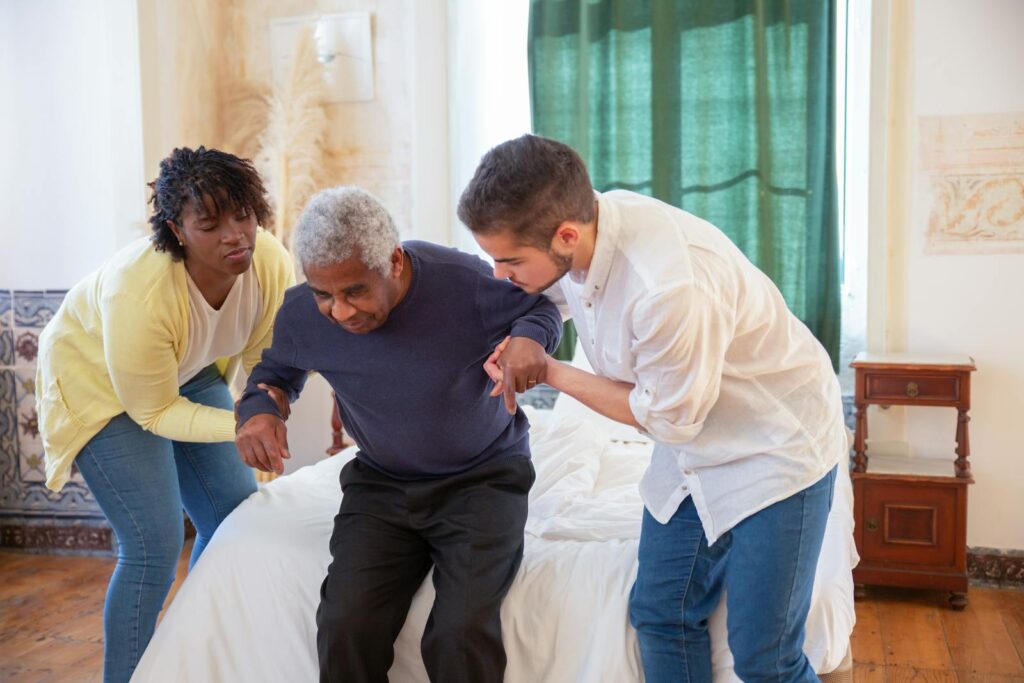As an experienced lawyer at BruegelPC, I often get asked if nursing homes take your Social Security check. It’s a common concern for many families as they navigate the complexities of long-term care. In this article, I’ll break down the truth behind this issue and what you should know. Stay with me to learn how you can protect your financial interests while ensuring the best care for your loved ones.
As demonstrated by Medicaid.gov, nursing homes typically require residents to use their income, including Social Security checks, to help pay for care. They can take most of the check but must leave a small personal allowance for the resident. This is standard practice to ensure care costs are covered.
Do Nursing Homes Take Your Social Security Check?
Nursing homes cannot legally take your Social Security check.
Essentially speaking, Social Security payments are meant to help people who are retired, disabled, or can’t work. While nursing homes might ask residents to use some of their income to pay for care, they can’t take money directly from your Social Security payments.
To cut a long story short, before moving into a nursing home, make sure you understand any financial agreements to protect your Social Security benefits. If you’re worried about how your money is being handled, talk to the nursing home administrators or a legal expert. Remember, Social Security payments are there to support you and cannot be taken by nursing homes without the right permissions.
How Nursing Homes Handle Social Security Checks
Nursing homes often receive Social Security checks directly from the government to manage residents’ financial needs and care costs efficiently.
Fundamentally, the checks are usually put into a special account that the nursing home manages to pay for care and other costs. Residents might be able to keep some money from the check for personal spending. Nursing homes must give a detailed report on how they use the money and make sure it benefits the resident.
Essentially, if there’s any leftover money when the resident leaves, it is typically given back to them or their chosen representative. It is important for nursing homes to follow strict rules when handling social security checks to protect the resident’s money and rights.
Protecting Your Social Security in a Nursing Home
As I mentioned previously, monitor your finances diligently to safeguard your Social Security in a nursing home and stay alert to any suspicious activity.
Fundamentally, store important papers like social security cards and bank statements in a safe place. Don’t share personal information with strangers or people you don’t trust. Think about setting up direct deposit for your social security payments to prevent checks from getting lost or stolen.
To put it briefly, if you suspect someone is misusing your social security money, report it right away to the proper authorities. Keep yourself informed about your rights and get legal advice if necessary. Regularly check your social security statements to make sure everything is correct. By staying alert, you can protect your social security benefits while living in a nursing home.
Can Nursing Homes Keep Your Social Security?
Looking at our previous talk, nursing homes are not permitted to retain your Social Security benefits.
Come to think of it, Social Security benefits are protected by law and cannot be taken by creditors, including nursing homes. These benefits are meant to support people who are retired, disabled, or unable to work, and should be used for their well-being.
Nursing homes must work with residents and their families to create payment plans that are fair and based on the resident’s income and assets. Sometimes, nursing homes may ask residents to use their Social Security benefits to help pay for care, but this should be part of a legal agreement ensuring the money is used for the resident’s care only.
Essentially put, if a nursing home tries to take someone’s Social Security benefits without permission or against the law, it should be reported to the authorities. People and their families need to know their rights and responsibilities when it comes to paying for nursing home care. If there are any concerns about Social Security benefits being misused, getting help from legal and financial experts is a good idea.
What Happens to Social Security in a Nursing Home?

Thinking about our last meeting, Social Security benefits keep coming even when individuals live in nursing homes.
So to speak, people usually get their benefits directly in their bank account or by a paper check. Sometimes, someone else might be assigned to manage these benefits if the person needs help.
The amount of Social Security benefits a person in a nursing home gets depends on how much they have worked and earned during their life. These benefits help pay for basic needs like food, shelter, and clothing.
People in nursing homes need to tell the Social Security Administration about their new living situation. In other words, if they don’t do this, their payments might be delayed or stopped.
Medicaid can also help people in nursing homes if they have little income and resources. It helps pay for long-term care, including room and board, for those who qualify.
Rounding it Up
Based on what we established, in conclusion, nursing homes can indeed take a resident’s Social Security check to retirements for cost of care.
What BruegelPC is showing the advantages of is, while regulations may vary by state and facility, it is important for individuals to be aware of the potential impact on their finances when considering long-term care options. It is advisable to consult with a financial advisor or elder law attorney to fully understand the implications.

